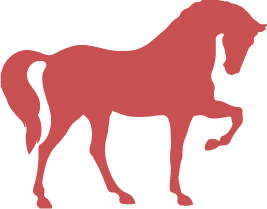4 TIPS TO OPTIMALLY PREPARE YOUR HORSE FOR COMPETITION AND HOT DAYS
Article Courtesy Cavalor The summer season is wonderful. Long evenings, plenty of competitions, and more time to enjoy horses and equestrian sport….
Free Delivery when you spend $49 or more. (Weight Limits Apply – view more)
 Dog
Dog

Shop Tuckers great range of dog food, health care & wellness products today. Delivered or Click & Collect.
 Cat
Cat

Tuckers has a great range of cat food, health care & litter products for your beloved cat. Shop now.
 Horse
Horse

Tuckers carry a huge range of food, supplements, health care, hoof care and grooming accessories. Shop now.
 Chook/Bird
Chook/Bird

Tuckers range of food, accessories & health care products will keep your chooks & birds happy and healthy.
 Small Animal
Small Animal

Shop food and health care products for your little mates @ Tuckers. Delivered or Click & Collect.
 Farm/Garden
Farm/Garden

Tuckers carry a wide range of sheep & cattle products, plus everything you’ll need around the farm or garden.
 Dog
Dog

Shop Tuckers great range of dog food, health care & wellness products today. Delivered or Click & Collect.
 Cat
Cat

Tuckers has a great range of cat food, health care & litter products for your beloved cat. Shop now.
 Horse
Horse

Tuckers carry a huge range of food, supplements, health care, hoof care and grooming accessories. Shop now.
 Chook/Bird
Chook/Bird

Tuckers range of food, accessories & health care products will keep your chooks & birds happy and healthy.
 Small Animal
Small Animal

Shop food and health care products for your little mates @ Tuckers. Delivered or Click & Collect.
 Farm/Garden
Farm/Garden

Tuckers carry a wide range of sheep & cattle products, plus everything you’ll need around the farm or garden.

And the multiple roles for Jenquine all-4-feet® in the health of horses and their feet

All horses have feet and foot health is essential for soundness. Jenquine all-4-feet® – formulated by Dr Jennifer Stewart, Australia’s only practicing equine veterinarian and nutritionist – is for all horses and their feet.
Hoof condition reflects nutrition. Many minerals, vitamins, amino acids and oils are fundamental for hoof growth and integrity. All are required for a strong wall and for healthy tissues that attach the hoof wall to the laminae underneath. Biotin is the most common nutrient supplemented for hoof health but no single vitamin or mineral acts alone in building a healthy foot. The hoof wall is over 90% protein, so protein is also important.
Proteins are made of amino acids and each protein in the feed has a different combination. Likewise, each tissue is built with a specific combination of amino acids – muscle is different to bone, is different to hooves etc. There are many amino acids needed for hoof building – including cystine, leucine, threonine and valine – with smaller amounts of methionine. It’s easy to see how deficiencies of any amino acid can lead to bad hoof quality. Many hoof supplements contain methionine to stimulate growth of a healthy hoof wall. However, the hoof wall is only a part of the foot, and methionine is just one of the amino acids that make a healthy foot. Jenquine all-4-feet® provides the array of amino acids and oils.
……… but all-4-feet ®isn’t just for feet
Muscle mass, body composition, power-to-weight ratio and ‘topline’ all depend on correct amino acid intake. ‘Topline’ – not to be confused with ‘cover’ which is fat – is the muscle along the neck, back, loin and croup that supports weight and provides propulsion and collection. When topline is weak the horse begins to load its legs asymetrically, increasing risk of injuries. Muscle building is so specific that if the diet doesn’t provide the precise amino acids and in the amounts required, muscle building may be reduced by up to 50%. Most equine diets are deficient in the amino acids required for muscle growth and Jenquine all-4-feet® can be fed before and immediately after exercise to support the muscle response to work; to top-up nutrient levels in prepared feeds; with roughage (hay/pasture) or with oats and extra energy for horses in work. Correct musculoskeletal growth Pregnant mares and growing youngsters require specific amino acids for muscle and bone development. Correctly fed weanlings and yearlings achieve greater gains in wither height, reach mature height earlier and deposit less fat. High sugar/starch (called NSC) intake has been correlated with OCD in young horses, especially in youngsters <14 months old1 and damage to the joints/cartilage and bone can occur within 3 months on starch/grain-rich feeds.2 Using low NSC feed for pregnant mares3 and foals has been shown to protect against bone diseases.4Jenquine all-4-feet® is low NSC
It’s a fundamental principle of nature that all horses and ponies require the same basic nutrients, but in different amounts. Higher feeding rates for breeding, growing and working horses ensure that increased requirements can be met. This is the science behind Jenquine all-4-feet®
All horses and their feet are at risk of veterinary clinical conditions associated with high NSC feeds. Recommendations for weight management5 and several common muscle (tying-up, PSSM)6 and endocrine (laminitis, EMS and PPID)7 problems include a feed that is low in NSC. Many older horses and horses and ponies with PPID have difficulty maintaining muscle mass. Adjustment of amino acid intake and provision of antioxidants (vitamin E, selenium and the minerals upon which the antioxidant defence system depends) can delay and reverse muscle loss. Soaking or steaming hay reduces the NSC but also leaches minerals. Jenquine all-4-feet® is formulated to supply nutrients lost during soaking, removing the need for multiple supplements. Limiting NSC underpins management and eliminating feedstuffs >12% NSC (grains and feeds based on bran, pollard, millrun, hominy meal, mill mix etc) is central to the management. The maximum safe NSC is 10-12%. Caution is required with heat-processed micronized and extruded feeds due to increased sugar/starch uptake.8 Jenquine all-4-feet® is ~9% NSC, does not contain any cereal grains, grain by-products or molasses and is not extruded or micronized.
Jenquine – bringing science to your feedbin
References: 1.Ralston S (1996) Hyperglycemia/hyperinsulinemia after feeding a meal of grain to young horses with osteochondritis dissecans (OCD) lesions. Pferdeheilkunde12:320-322. 2.Glade M et al (1986) A dietary etiology for osteochondrotic cartilage. JEVS 986 6:151-155. 3.George L et al (2009) Insulin sensitivity & glucose dynamics during pre-weaning foal development & in response to maternal diet composition. Dom Animal endocrinology 37(1):23-29 4.Robles M et al (2018) Maternal obesity increases insulin resistance, low-grade inflammation & osteochondrosis lesions in foals & yearlings until 18 months of age. PloS one13(1) 5.Morgan R et al (2016) Treatment of equine metabolic syndrome: a clinical case series. EVJ 48(4):422-426 6.Karikoski N et al (2015) Pathology of natural cases of equine endocrinopathic laminitis associated with hyperinsulinemia. Vet Path52(5):945-956. 7.Aleman M et al (2006) Myopathy in horses with pituitary pars intermedia dysfunction (Cushing’s disease). Neuromuscular disorders16(11):737-744 8. Richards N (2006) GRAIN PROCESSING: THE DOUBLE EDGED SWORD In:Aust. Eq.Sci. Symp p33
Entire range - quick and secure delivery
Buy securely online and pickup at your local store
Call your local store and come on down to pickup
© 2026 Tuckers Pet & Produce.
